Born in Romania, raised in Canada, now living in Berlin, Simina Grigoriu describes herself as a “DJ and producer, a mom and a wife, a two-time immigrant and a citizen of the world.” She’s gradually perfected her sound over the course of her decade-long career in music. She produces techno with diamond-hard, dance floor grooves, matched to crisp, effective programming with hints of deep musicality just below the surface – as displayed on her recent ‘Interpol 2020’ EP on FORM. As a DJ, she favours similar driving techno, happy to smoothly transition or to rinse out the FX section as the occasion demands.
Who Is Simina Grigoriu? A techno DJ and producer, based in Berlin. Since her first release, the no-nonsense ‘Mukluks and Ponytails’ on Sonat in 2010, she’s put out music on labels like ELEVATE, Tronic Music, Frequenza, Prospect and Complex, and she launched her Kuukou Records label in 2016. A DJ before she began producing, Simina has played all over the world.
We spoke to her about her DJing style, her worst ever request and much more.
Put this on & keep reading.
Tell about your DJing. What format/kit do you usually use and what style do you play?
I started out playing only vinyl. I had two Technics 1200 and an X:ONE 92. I learned to mix the traditional way: by listening.
In 2008 when I moved to Berlin, I adopted Traktor Scratch Pro. I love the tangibility of vinyl and even though the timecode sound cannot recreate that warm feeling of wax, I very much love to have my vinyl and timecodes together. In 2015 after I had our baby, Isabella, I switched to CDJs (which felt too easy at first) because Traktor was crashing non-stop. I got tired of carrying the sound card only to be confronted by technical difficulties often enough that it became a burden. I figured, why not join the masses and focus on the music instead of the medium. Having said that, I also always carry a few records. Doesn’t feel right not to.
As for my playing style, I could say it’s straightforward techno with feeling. It must hit the heart – otherwise, what’s the point?
In terms of equipment, what do you bring with you to gigs?
Sony MDR-7506 Headphones. 4 USB sticks – meticulously organised using Rekordbox. And some vinyl, so I can switch it up partway through the set.
Any other bits and pieces you always bring with you?
None, really. I used to travel with a couple of little Faderfoxes controllers, but I now focus on the power of the mixer and the strength of the tracks I choose. One thing I always bring to the club are my KIND ear protectors. Even if I never wear them, they’re always with me. I also have a bunch of random stuff that has nothing to do with music that basically lives in my DJ case. A girl’s gotta be prepared! Plus, I’m crazy OCD about organisation and preparedness. Must be the Canadian camper in me.
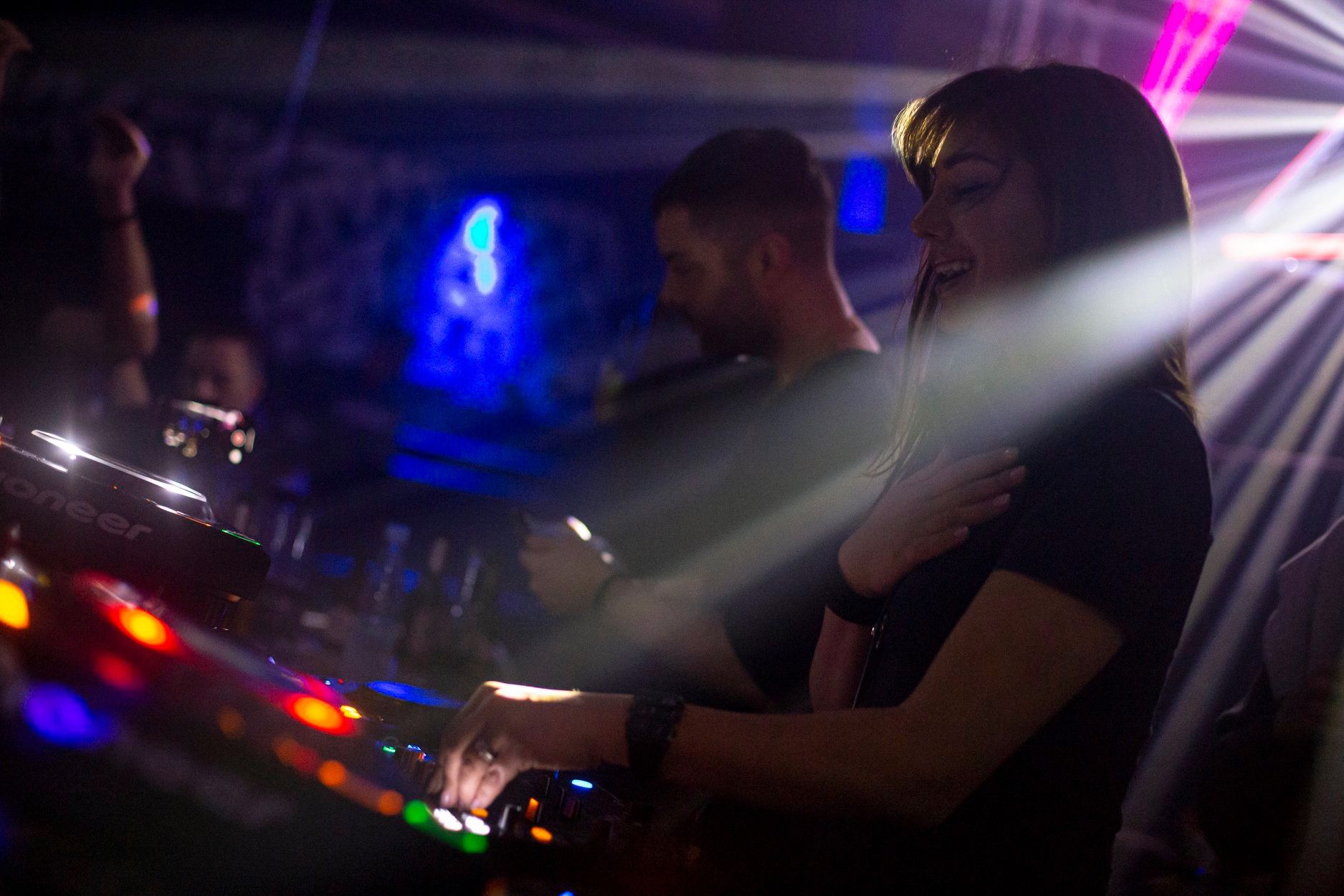
What’s the worst technical hitch you’ve ever had DJing? How did you deal with it?
Traktor cables and connections. They faulted on me so many times (even with new ones), and that’s why I made the switch to players. How I dealt with it was to quickly get out of that channel and spin it like I intentionally did it that way. Technical skills are very important, but what’s equally valuable is to know how to recover if something goes wrong.
And do you ever get requests? Ever had any weird ones?
Umm, yeah. There have been some flabbergasting, unbelievable (and laughable) situations. Here’s one:
In Malta, many years ago, I was booked for an ever-unfitting party where they played pop music before and after me. The crowd reflected that demographic. I honestly wondered why the hell I was there at all – I am a techno DJ. In the middle of this mess, I played my two-hour set and at one point a young girl walked right up to me and started asking me to play a certain song. Problem was, she didn’t know the title of said RADIO JAM!!, so she started aggressively singing it to me while I was mixing records on stage!
Pfff… I smiled, told her it’s not possible, and went back to work. Her boyfriend came up to me and started talking in Maltese about what track I was SUPPOSED to play – at which point I was like “buddy, with all due respect, BACK THE FUCK OFF!” (In a nice way, of course.) Meh. Shit happens and we deal with it. We bounce off it and we recover fast. That’s a big part of this job.
Even the best DJ in the world occasionally makes a weak programming decision or a poor transition – what do you do to recapture the vibe?
Oh, I feel this right away when it happens. I sometimes choose a track and realise, “oops! Wrong one! Quick, get out of this and bring back the vibe of five minutes ago.” It’s easy to confuse the audience with mismatched musical choices – but there are also beautiful mistakes, too. Transitional mistakes have to be recouped immediately if they’re skilled, often it’s only the DJ that hears it. That separates the pros from the rest, because if it’s a dynamic on-the-fly performance, some hiccups are bound to occur once in a while.
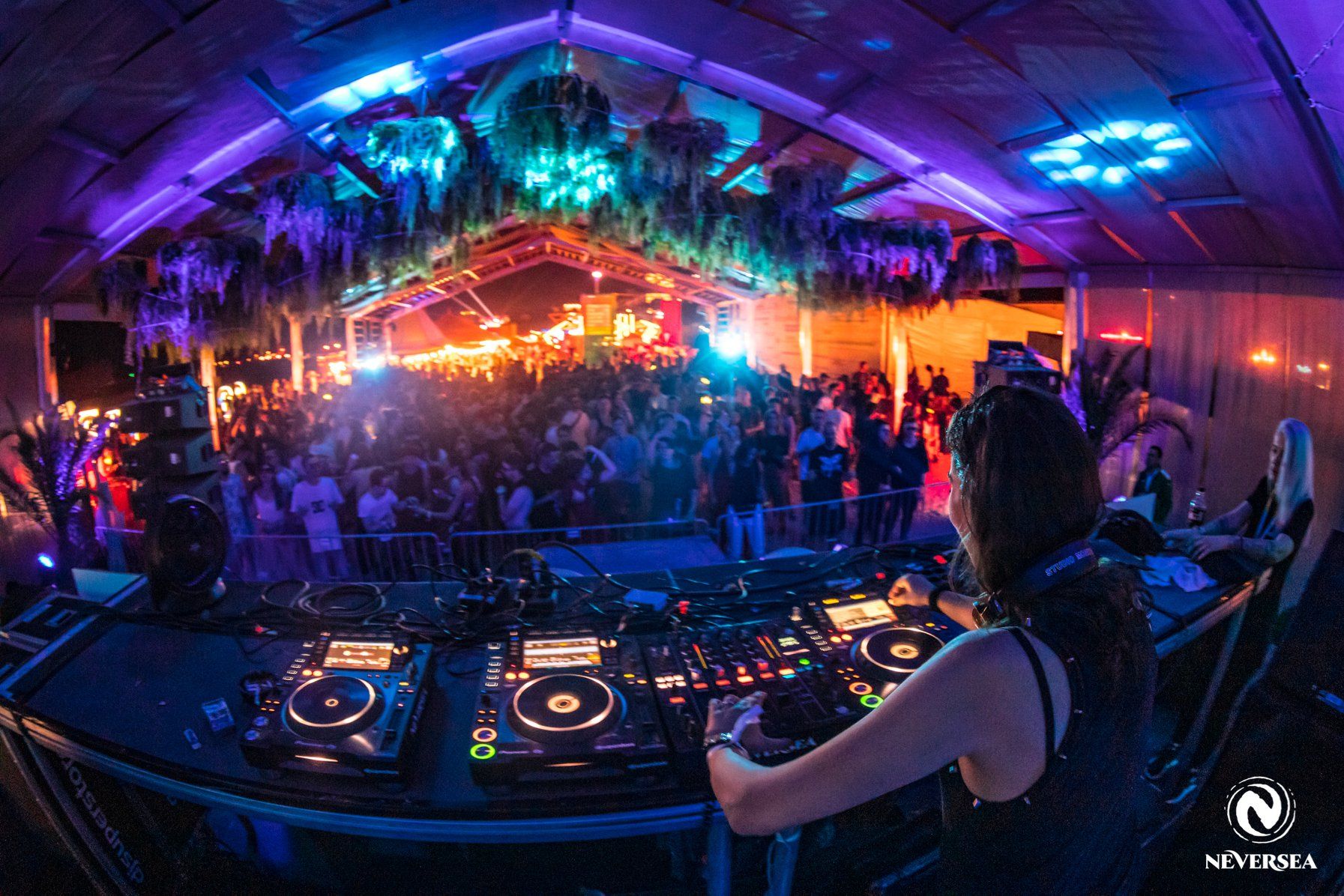
Do you use the EQs and filters much when mixing? Any EQ-related tips for newer DJs?
Yes, and often. My advice is to get to know these well. They can be your best friend or worst enemy. There’s a lot of pressure to do too much while playing and a lot of times filters can sound like overkill. Play around with this. Record yourself and hear it in proper monitors to see if you’ve taken it too far, or not enough.
Do you do much live looping or re-editing?
Sometimes, but I have too many tracks and I’d rather cram as much good stuff into the set as possible. Loops are great if you love or need to extend a track. Essentially, you can keep an underlayer going forever – but these are just tools, and it’s all up to personal preference.
DJs using the FX section on the mixer can often split opinion. What tips might you offer regarding using the effects section?
Experimentation is key. Try EVERYTHING. You’ll find the right FX(s) and the settings that fit to the sound you want to create. Fine-tune the settings so you don’t go into distortion and just play around until you feel comfortable. I mess around with this on stage and sometimes wonder why I’ve even touched a certain parameter. Try this at home so you’re familiar with it, and that will build confidence live on stage.
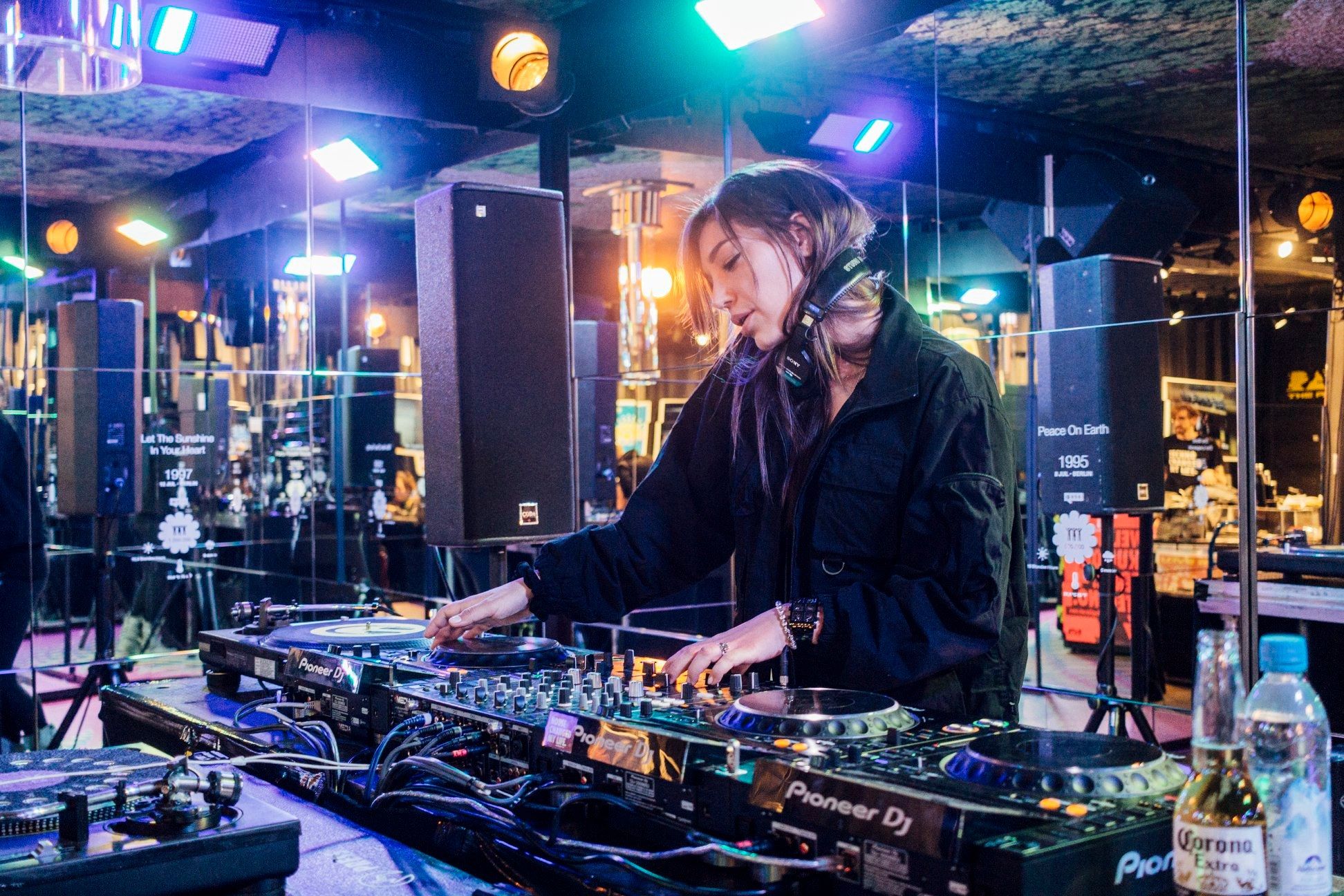
How do you source your music? What advice can you offer to young DJs searching for tunes?
I love crate digging, but I’ve also done A LOT of it in my life. I get sent tons of promos and sometimes forget about the pleasure of finding gems for which one’s actually searched. I like to go to record stores every few weeks to browse and buy and ask and try and play and and and… but I also cruise Traxx, Juno and Beatport for the labels I love and similar sounds/artists.
I’d suggest to any aspiring DJ to do the same. I also encourage them to write to labels they like. You’d be surprised how easy it is to build up a pool of monthly promos from labels you love by writing a quick request to the label. Contacts are super easy to find on Facebook and Instagram pages, and most labels are happy to include newcomers and even just music listeners – because why WOULDN’T you want to spread the love? Music is meant to be shared. Sure, sales are important, but more so I care about making people happy and keeping the spirit of the music alive.
How do you keep your music collection in order?
I import all my new digital music into iTunes and create my playlists for various podcasts, shows, and now streams. This way I weed out what I know I will never play (but still want to have to hear) and from there I import to Rekordbox. I give each track a once-over – but if I’m honest, I don’t pay this program much mind. It’s there for me as a medium between sorting and playing. It’s a way to gather what I need to be dynamic on stage.
I love playing records, beatmatching and fixing hitches on stage if need be. I don’t need all that pre-planned and pre-set stuff. I set up some key cue points but that’s about it. The magic happens on the mixer, not before…
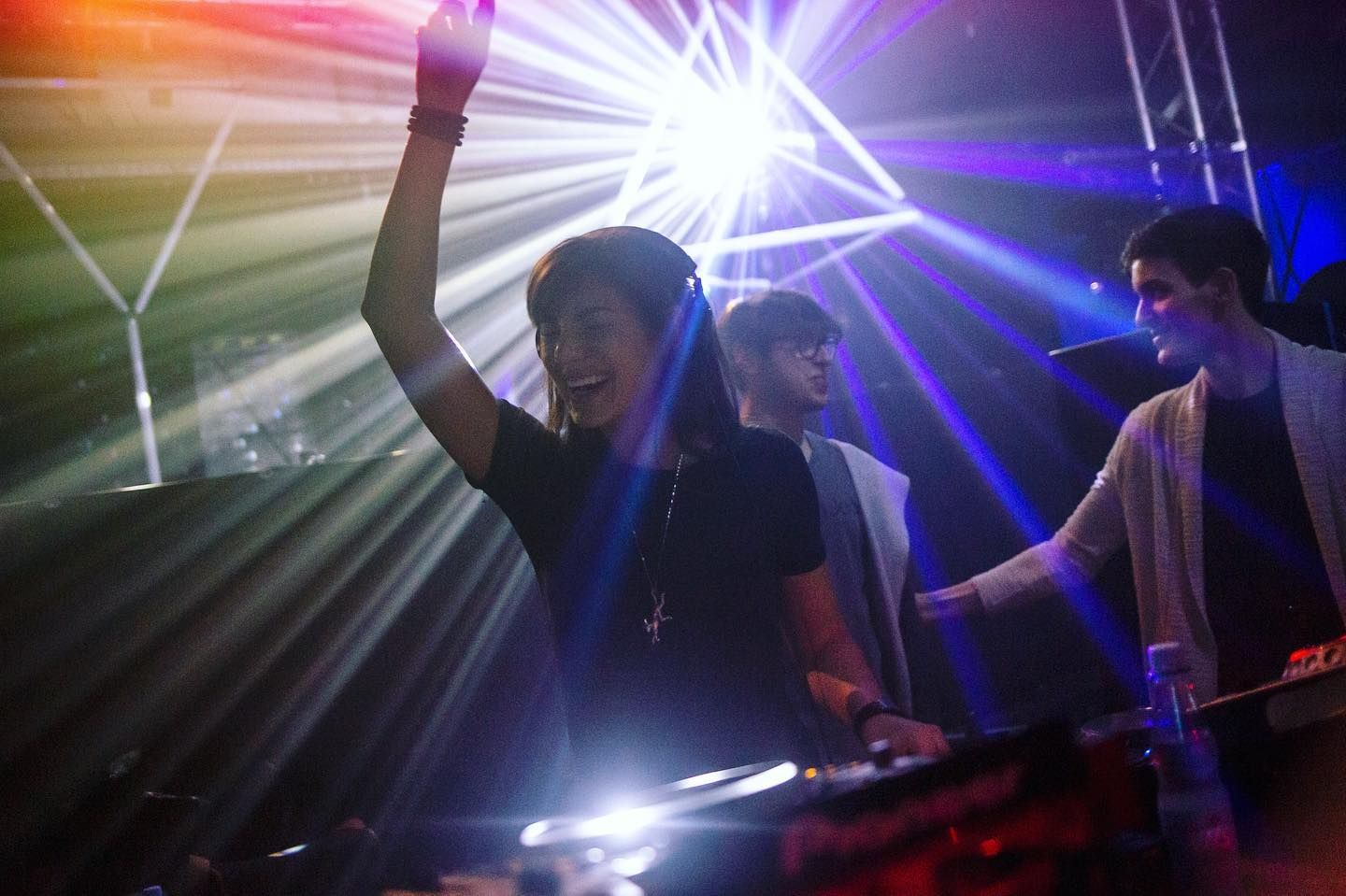
Are your gigs all “off the cuff”, or do you have favourite mixes and transitions that you go back to?
I have my favs, of course. But I try to keep it fresh and play loads of new stuff. That way, I can see what works and what doesn’t – what makes the bodies move and what makes them move over to the bar. As for my playing style, I am super spontaneous. It’s always different and it’s important to have fun and do it with confidence.
What is it that makes a record work on the dancefloor?
A good hook, a fat bassline, and a kick that you feel rumbling through your entire body.
What does DJing mean to you?
It’s my passion. It’s my pleasure. It’s a massive part of who I am—and it was so even before I touched a record. I would attend jungle raves in the 90s where all the DJs played vinyl. We were obsessed with the music and it transported us to wherever we needed to be at that point in time in our lives. For many of us, it was a beautiful escape. And the DJs did that for us. Now I can do this for others, and that makes me happy.
Can you tell us one of your very best DJ moments?
The time my mom saw me play live and in the flesh. It only happened once, and it was in Berlin at Weekend many years ago. She came to visit us and joined us at the club. I don’t think she had taken me or my job seriously until that very moment because I quit working in corporate advertising to pursue a dream in the electronic music industry. But that night, she saw me in a different light. She also had her camera shoved in my face the entire time so I think I made her proud.
Tell us your favourite place to DJ.
It would be Berghain, but that’s never happened. Pipe dream is to play on Macchu Picchu. I’ve ticked that visit off my list, but somehow I would just give anything to set up some decks between the mountains and go go go.
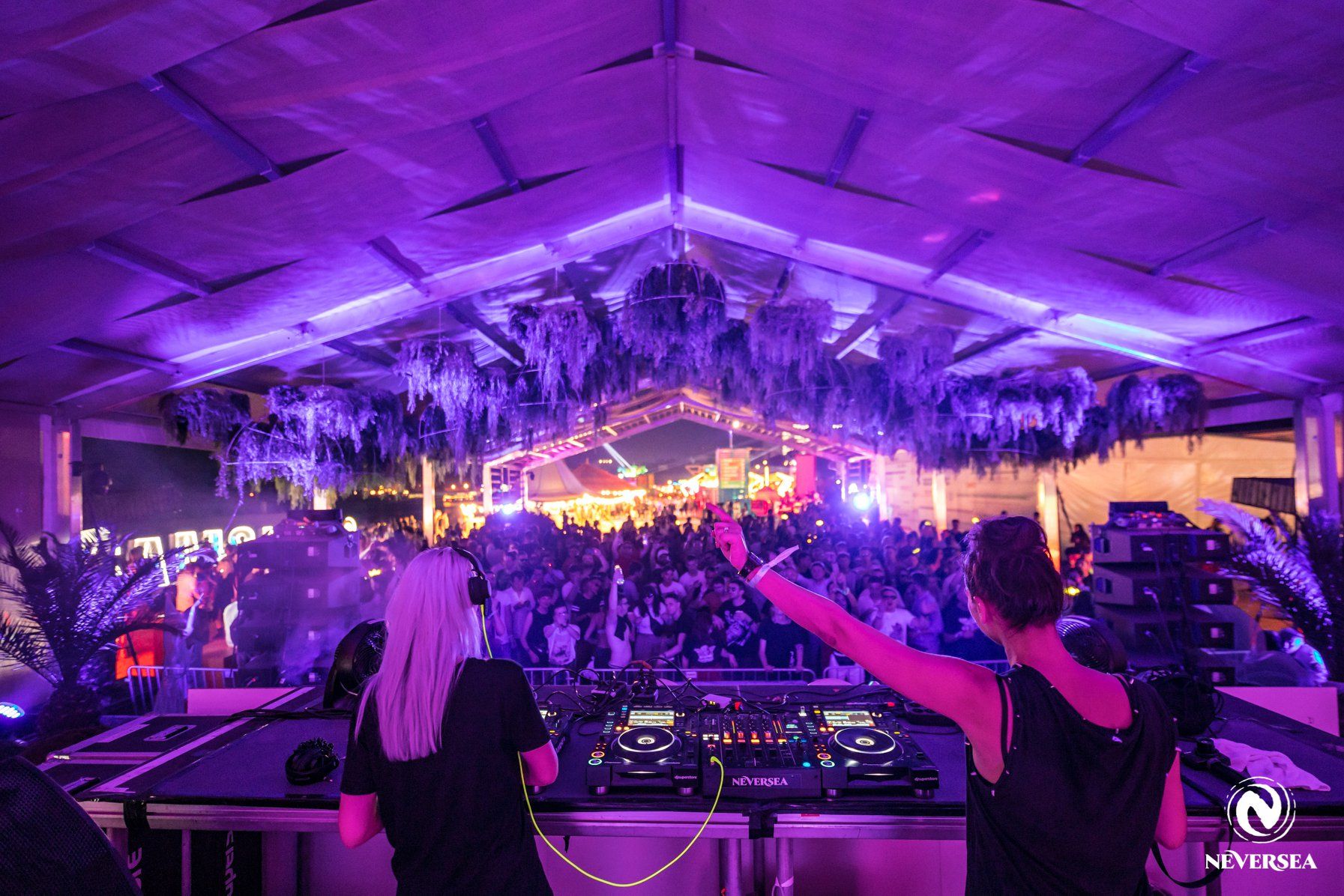
What do you think separates good DJs from great DJs?
No idea. Still trying to figure that one out.
For all the young DJs reading this who play warm-up sets to half-empty back rooms in their hometowns, what’s the one piece of advice you’d offer to them?
Never give up! I STILL sometimes play half-empty venues. There’s no such thing as always amazing, and there will always be room to improve – be it technical skills or musical knowledge.
Keep yourself interested in what’s going on, and never take no for an answer. If you don’t get the booking, fine – you’ll get it next time. If you don’t know how to do something in the studio, ask for help. Ask a friend. Ask YouTube! Show interest. Show up! Talk to people about music. Network with your favourite artists. Write to labels to get on promo lists. Send in your demos. Ask for feedback. Do what you can and get out of that comfort zone. Growing as an artist is not supposed to be easy.
It’s also not easy to always stay positive in this industry and especially not now during this very challenging time for us all, but… we have to keep our heads up—it’s the only way forward.
Dive into Simina’s tunes – head her SoundCloud for a killer roundup of mixes, check out her website, and explore her label, Kuukou Records.





